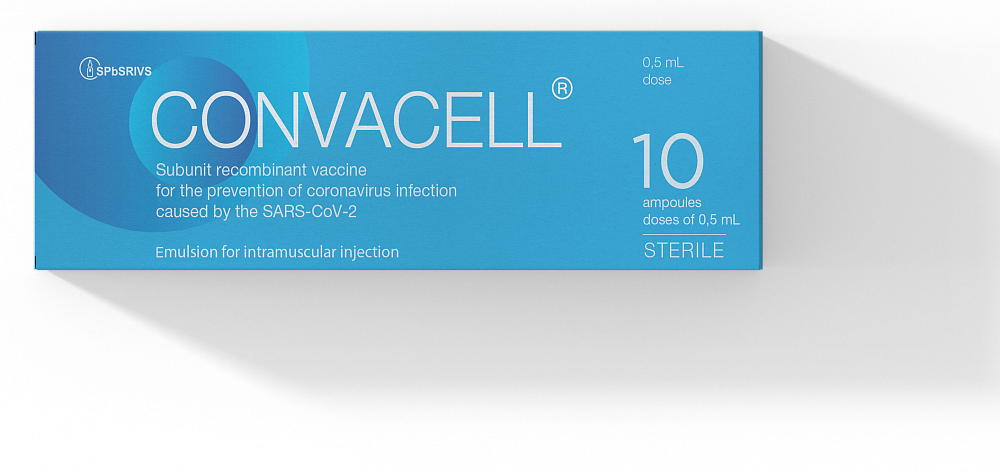Convacell® was created on the basis of the recombinant N protein of the SARS-CoV-2 virus, which itself is highly conservative, i.e. it slightly differs in new strains of the virus from the original strain identified in Wuhan, China.
The vast majority of epitopes in the N proteins of different strains of SARS-CoV-2 remain identical, therefore, an almost identical immune response can be expected when a person vaccinated with Convacell® encounters various strains of the SARS-CoV-2.
For example, in Sputnik V, the adenoviral vector has an “embedded” fragment of the coronavirus S protein. The S protein helps the coronavirus to penetrate into the body cells.
Convacell® is a new generation product targeted to N protein. It is more conservative, i.e. less susceptible to changes during the virus evolution.
The data obtained showed that Convacell® generates a stable immunity in humans, which prevents the development of coronavirus infection. It also facilitates:
This means that the Convacell® is more effective against a large number of strains.
Yes, the Saint Petersburg Institute of Vaccines and Sera of FMBA of Russia, plans to transfer the Convacell® production technology to another production site in Latin America – Instituto Latinoamericano de Biotecnología MECHNIKOV (the Republic of Nicaragua) – and supply the products to the countries of the region.
